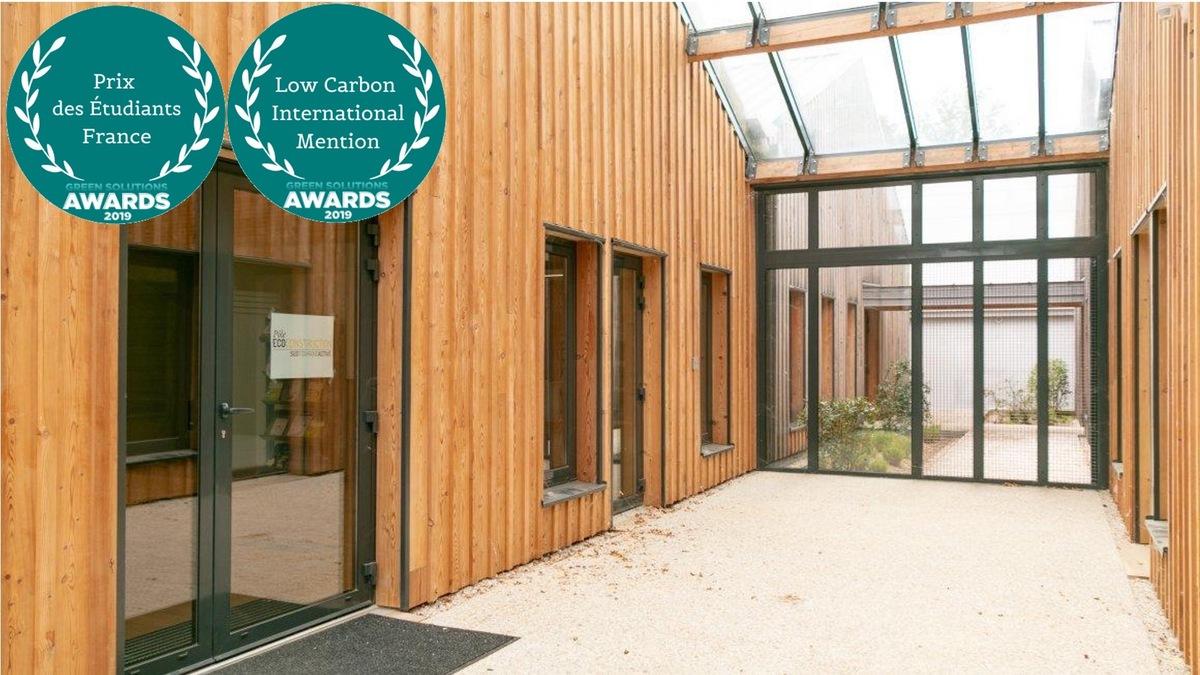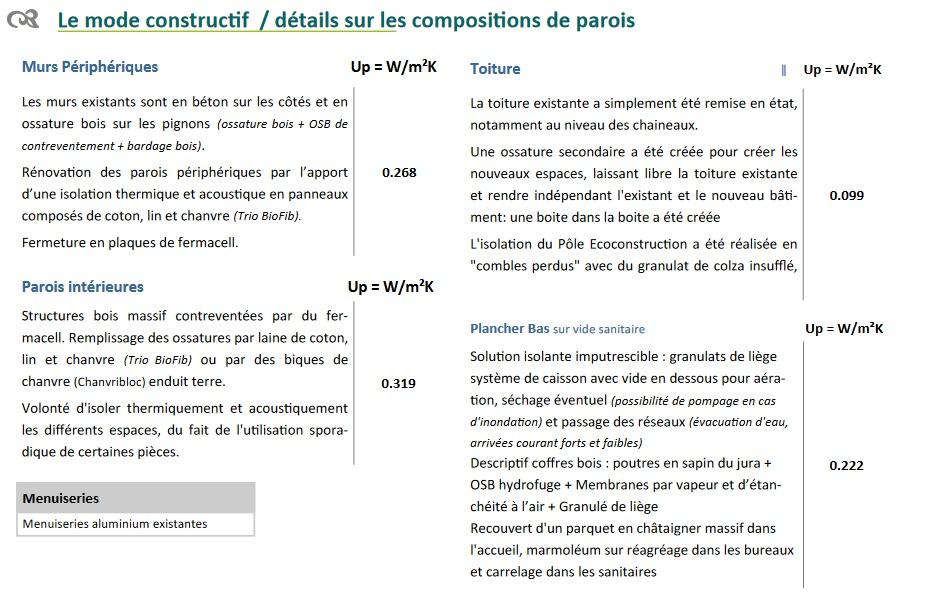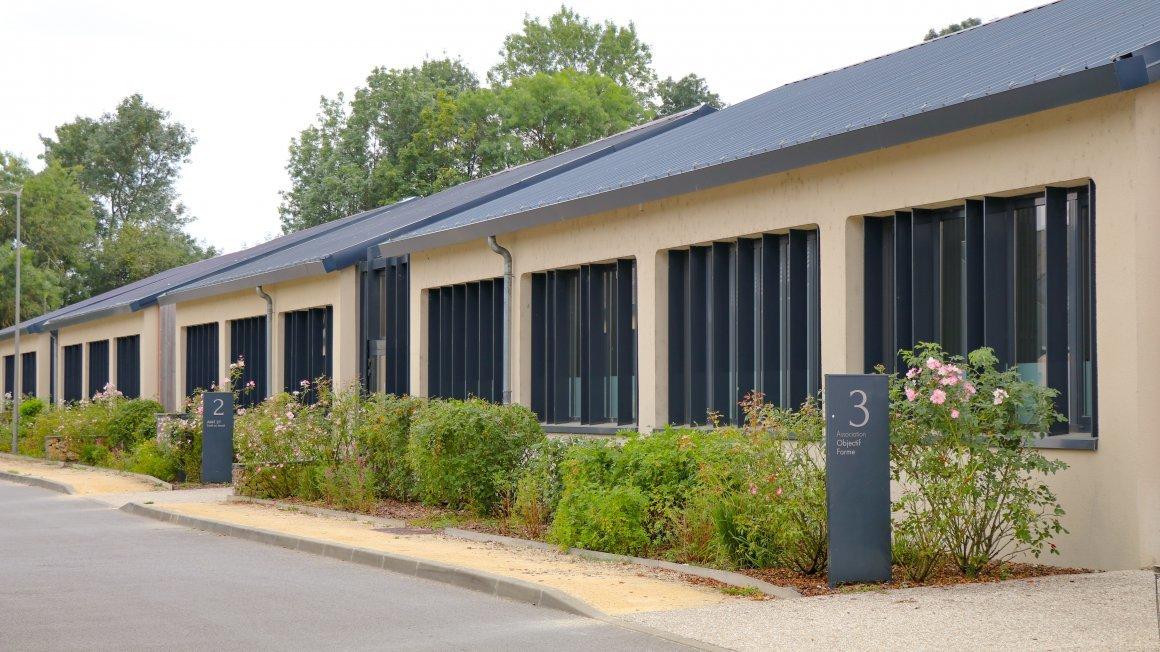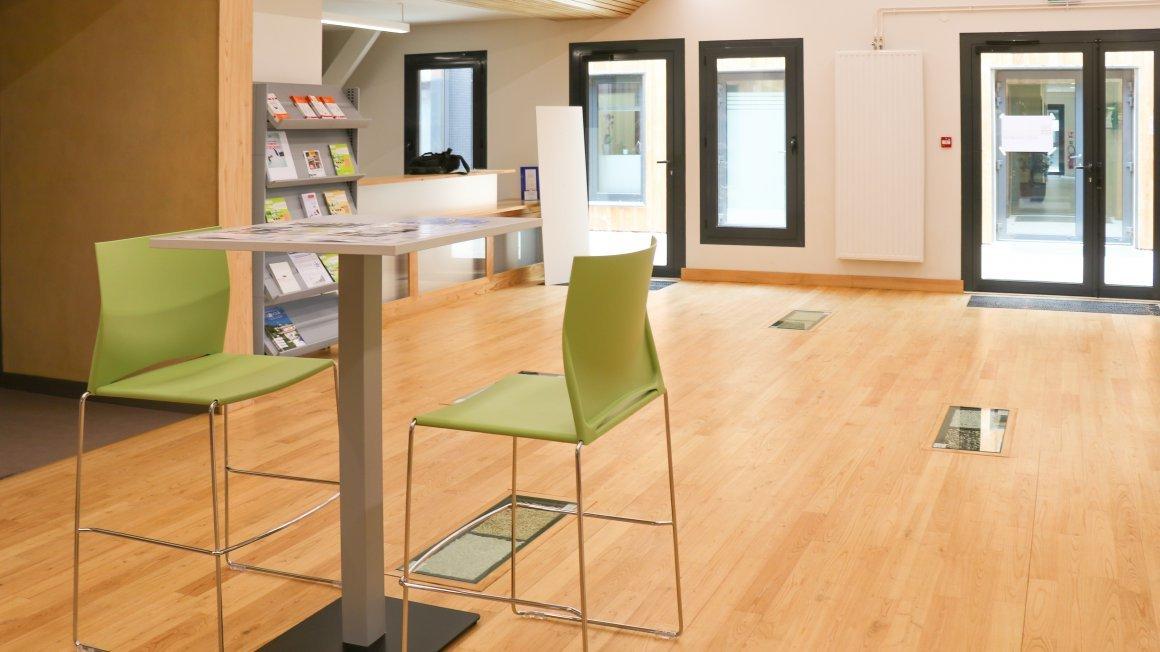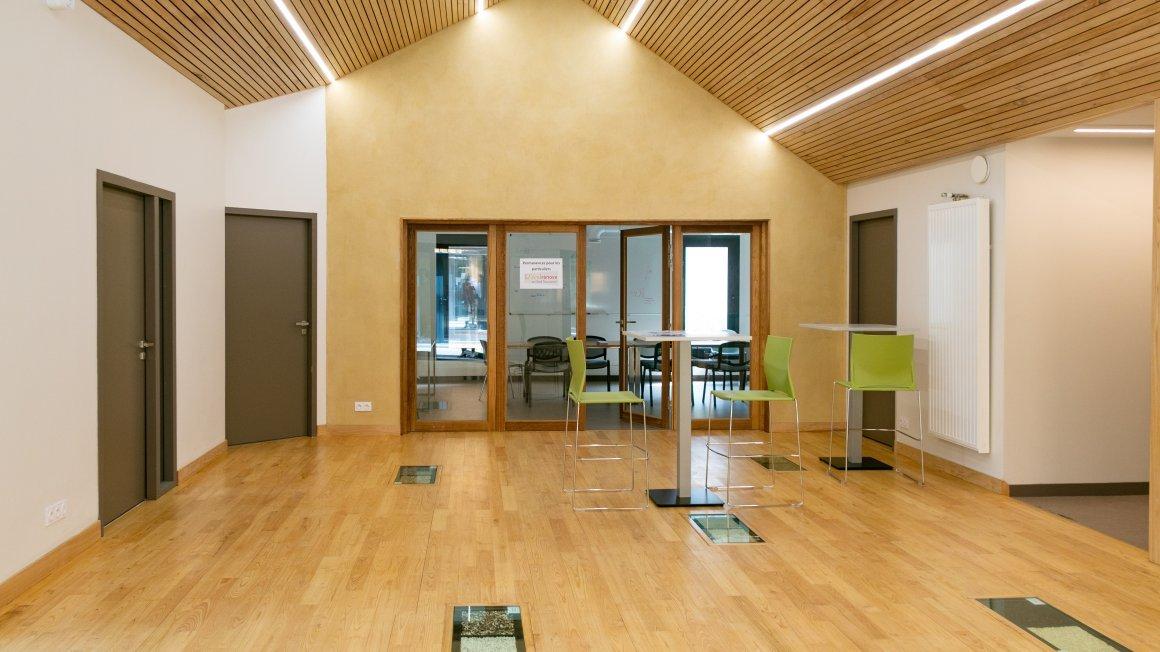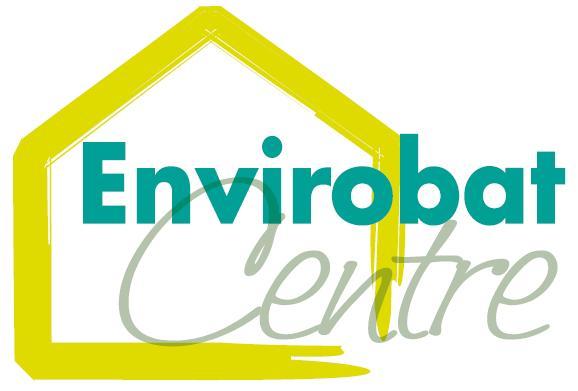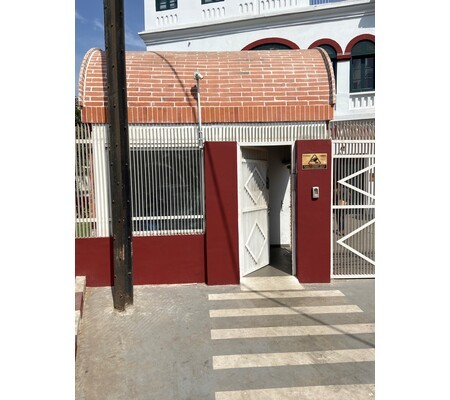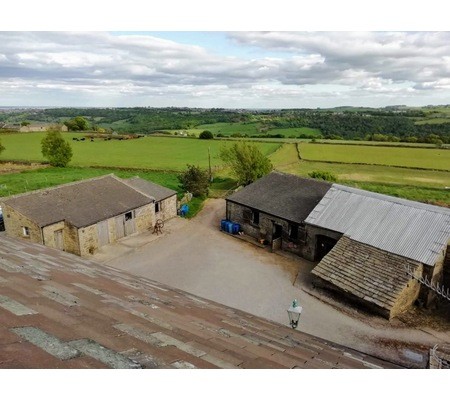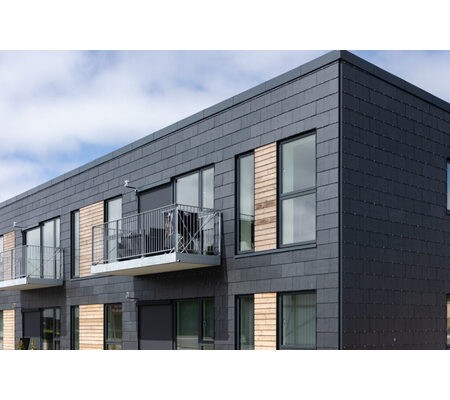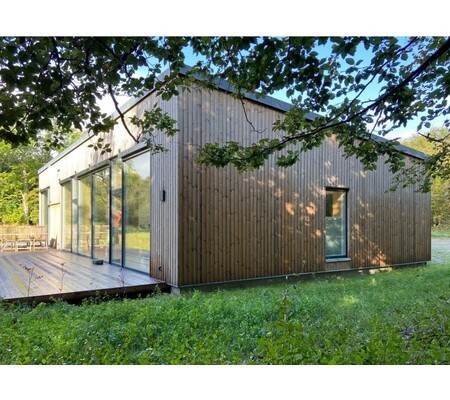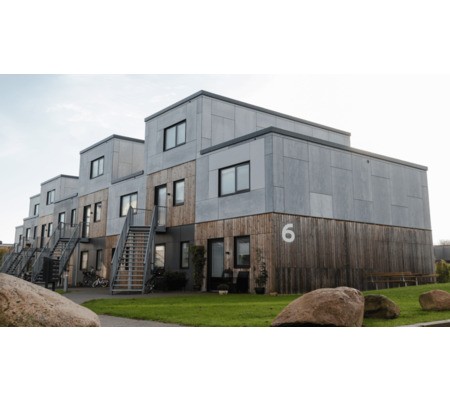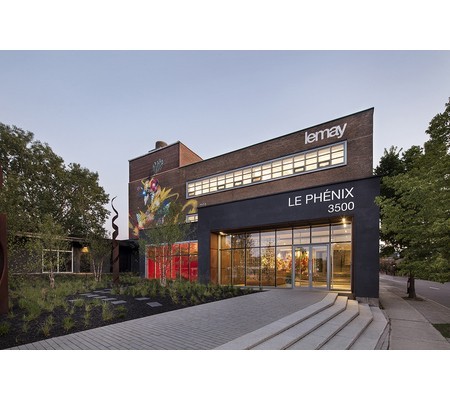Ecoconstruction center of Beaulieu-lès-Loches
Last modified by the author on 11/05/2020 - 15:32
Extension + refurbishment
- Building Type : Other building
- Construction Year : 1900
- Delivery year : 2017
- Address 1 - street : 1 Place du Maréchal Leclerc 37600 BEAULIEU-LèS-LOCHES, France
- Climate zone : [Cfb] Marine Mild Winter, warm summer, no dry season.
- Net Floor Area : 515 m2
- Construction/refurbishment cost : 437 090 €
- Number of none : 2 none
- Cost/m2 : 848.72 €/m2
-
Primary energy need
92 kWhep/m2.an
(Calculation method : RT 2005 )
The Ecoconstruction center of Beaulieu-lès-Loches won the Student Award - Building of the the 2019 Green Solutions Awards at the France level and a mention for the international Low Carbon Award.
As part of the implementation of an Ecoconstruction sector on the territory of South Touraine, it was decided to create an Ecoconstruction Pole, used as:
- demonstration space of eco renovation / eco construction and agro materials
- training area for professionals (business leaders, employees, jobseekers) and the general public
- workspace and meeting place for building engineering professionals
Rather than building "out of nothing" an exemplary building, the project manager was taken to work on the development of a building , already partially rehabilitated. This symbolizes better the built park on which it is necessary to work within the territory of South Touraine.
A veritable showcase of the Ecoconstruction sector and energy savings, notably through energy renovation, the Ecoconstruction Pole welcomes different audiences: local entrepreneurs, trainees for training courses, general public, building engineering companies, etc.
Materials implemented
Structure: Wooden frame & Wooden cladding
Insulation: Cotton, linen and hemp, rapeseed granulate.
Short cycle
The insulation of the Ecoconstruction Pole was carried out experimentally in "attics", by insufflation of locally grown and processed rapeseed aggregates (at 3km from the site)
Sustainable development approach of the project owner
The design and realization of this development are meant to be in themselves demonstrators: the objective is to achieve the best thermal performance, using the maximum of agro materials, in a defined budget. The choices made by the project manager have been strongly argued, to facilitate reproducibility on other similar sites, and especially to illustrate, within the framework of the museography associated with the site, the problems related to the efficient renovation of buildings. In addition to MBS (Raw and assembled wood, rapeseed and sunflower aggregates, TrioBioFib panels, Chanvribloc), other healthy products were used: earth, marmoleum, fermacell coatings that are not included in the calculations. "Workshop" section of 470 m² is designed to accommodate experiments or training related to Ecoconstruction and agro-materials: it will be possible to isolate the locker room , designed to accommodate straw insulation, make insulating coatings on existing walls.
Architectural description
The chosen site is located in Beaulieu-lès-Loches, in an old industrial building, whose envelope has already been redone, with an architectural signature unchangeable.
The eco-construction pole has several vocations:
- Training space of 470 m2 to accommodate training organizations and manufacturers of agro-materials and expand the skills of craftsmen and their employees on eco-construction. 45m2 meeting room to welcome, inform, train and support craft companies.
- Space of awareness , information & support of the general public.
- Demonstration building of local know-how and agro-materials
- Reservoir of skills : coworking space & individual offices for entrepreneurs, project leaders and partners working on eco-construction and energy renovation.
This cluster is located in the heart of a tertiary center dedicated to the advice and support of businesses and residents alongside the Local Mission, The National Employment Service, Consular Chambers, etc. Rather than constructing an exemplary building from zero, the eco-construction division has been set up in an old industrial building that has already been partially rehabilitated, which better symbolizes the built park on which it is necessary to work within our territory.
See more details about this project
http://ecoconstruction.sudtouraineactive.com/le-pole-ecoconstructionPhoto credit
Courtesy of Envirobat Center and eco-construction south-touraine
Contractor
Construction Manager
Stakeholders
Other consultancy agency
SOCOTEC
https://www.socotec.comControl
Thermal consultancy agency
EFFILIOS
https://effilios.fr/
ARCABOIS
http://www.arcabois.fr/Environmental consultancy
C2A
02 47 67 94 26
http://www.c2a-economie.fr/Economist
Energy consumption
- 92,00 kWhep/m2.an
- 92,00 kWhep/m2.an
- 1,00 kWhep/m2.an
Envelope performance
- Peripheral walls: 0.268 W / m2K
- Inner walls: 0.319 W / m2K
- Roofing: 0.099 W / m2K
- Low floor (on crawl space): 0,222 W / m2K
Systems
- Wood boiler
- Individual electric boiler
- No cooling system
- Double flow heat exchanger
- No renewable energy systems
Urban environment
Product
Biofib'Trio
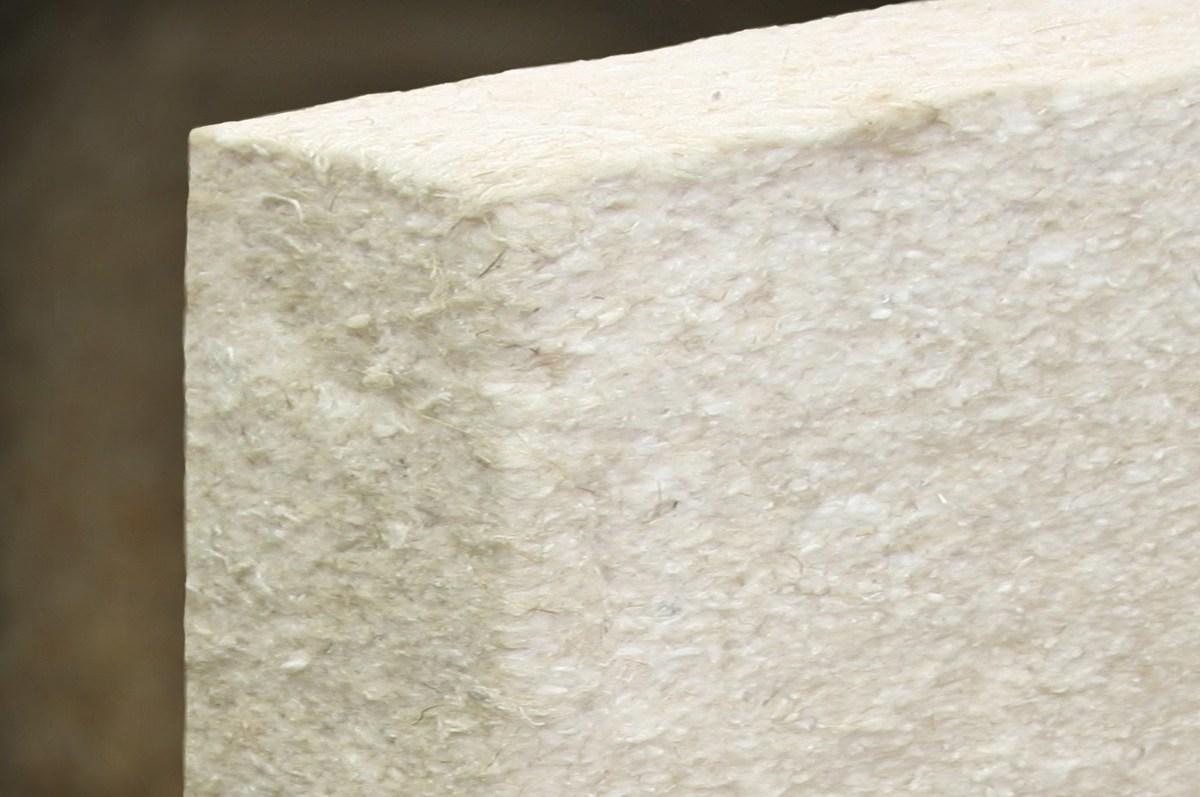
biofib'
https://www.biofib.comFinishing work / Partitions, insulation
Biofib'Trio is a unique alliance of hemp fibers, cotton and linen, offering exceptional thermo-acoustic insulation. The semi-rigid panels Biofib'Trio (available in thicknesses from 45 to 200 mm) or rollers, are specially adapted for an ecological insulation and "any comfort" of the habitat, with thermal performances certified ACERMI.
-
Block of hemp
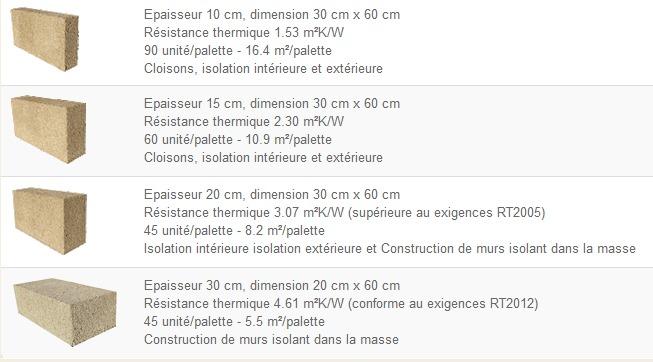
chanvribloc
http://chanvribloc.comFinishing work / Partitions, insulation
-
Construction and exploitation costs
- 437 090 €
Life Cycle Analysis
- Structure: wood frame & wood cladding
- Insulation: cotton, linen and hemp, rapeseed granulate
- Total mass of MBS used: 98 kg / m2
- Mass out of wood work and development: 78 kg / m2
- Insulation "attic lost" by insufflation of rapeseed aggregates grown and processed locally (3 km from the site)
- Renovation of the peripheral walls by providing thermal and acoustic insulation in panels made of cotton, linen and hemp
- Inner walls: solid wood structures braced by fermacell. Filling of frames by cotton wool, linen and hemp (Trio BioFib) or by hemp bricks (Chanvribloc) coated earth.
- Low floor: rot-proof insulating solution: cork aggregates caisson system with vacuum underneath for aeration, possible drying (possibility of pumping in case of flood) and passage of networks (evacuation of water, strong and weak current arrivals). Description wooden chests: Jura fir beams + OSB water repellent + Membranes by vapor and airtightness + Granule of cork Covered with a chestnut parquet solid in the home, marmoleum on reattachment in offices and tiling in sanitary
Reasons for participating in the competition(s)
L'aspect bas carbone de ce bâtiment repose sur une démarche réplicable en région Centre-Val-de-Loire : la rénovation de bâtiments déjà partiellement réaménagés. Le bilan carbone de ce type d'opérations est bien meilleur qu'une construction neuve et permet par ailleurs de participer à la dynamisation de lieux existants.
Pour continuer à travailler dans une perspective bas carbone, les matériaux biosourcés ont été largement utilisés tout en restant dans des coûts raisonnables, sachant qu'il s'agit d'un démonstrateur. L'expérience d'isolation à base de colza est aussi une initiative afin de tester un matériau issu d'une filière courte et abondante sur l'ensemble de la région. Le développement de celle-ci permettrait par ailleurs aux agriculteurs de maîtriser davantage le prix de vente de leur production.
Ce bâtiment s'inscrit donc autant dans une réflexion bas carbone que de pérennisation et dynamisation du paysage socio-patrimonial de la région.Sur le plan structurel, Les matériaux utilisés dans le cadre de la réhabilitation servent de démonstrateurs : bois massifs au sol et plafond, enduits terre et enduits isolants aux murs, plaques vitrées au sol pour voir 12 solutions d’isolation en vrac (liège, chanvre, ouate, écorce de tournesol, colza, moelle de tournesol, etc.).
Solutions techniques employées pour l’aménagement du site :
- Utilisation du bois comme éléments structurants dans l’enveloppe existante (plancher, ossature)
- Création de caissons bois isolés au sol, avec du liège : le bâtiment se situant en zone inondable, il a fallu rehausser le sol de 60 cm, tout en l’isolant avec un matériau imputrescible. Cette solution sèche a été privilégiée à une solution « béton isolant » pour des raisons de séchage et de quantité de matériaux à fournir.
- Les murs extérieurs et certaines cloisons sont isolés avec une fibre de bois-chanvre, intégrant du coton : cette solution isolante a également des propriétés acoustiques intéressantes pour des bâtiments tertiaires.
- Pour des questions d’inertie et de séparation phonique, des cloisons ont été posées avec des panneaux de chanvribloc, enduits à la terre crue. Le chanvribloc, parpaing de béton de chanvre, a été privilégié à du banchage de granulats végétaux, pour des raisons d’évacuation de l’humidité, dans le cadre d’une réhabilitation au délai contraint. La finition terre permet de mettre en avant ce matériau intéressant à différents titre, dont le bilan carbone.
- Le plafond est isolé avec des granulats végétaux locaux (granulats de tournesol, cannes de colza broyés). Ce choix significatif de la maîtrise d’ouvrage sert de chantier pilote pour cette solution isolante en vrac. L’instrumentation permet également de voir le comportement et le vieillissement de ce matériau.
- Le chauffage est assuré par une chaudière à granulé bois, présentant un bon bilan carbone et un bon retour sur investissement. Cette solution a été préférée à une PAC eau-eau, pour inscrire le Pôle dans la démarche « Bois énergie » du territoire. Dans l’hypothèse d’une création d’unité de fabrication de granulés, la collectivité pourrait également s’approvisionner localement.
- Une ventilation double flux a été installée sur tout le bâtiment, seule solution permettant d’allier renouvellement d’air et conservation des calories.
- Des GTB (Gestion Technique du Bâtiment) sont présentes sur la chaudière bois et la ventilation double flux. Associées aux compteurs différenciés, cela permet d’avoir un regard sur les consommations d’énergie, en fonction des usages.
- Pour limiter les traversées de paroi, et présenter la technique, les différents réseaux (chauffage, électricité, double flux) sont apparents.
- Les finitions sont naturelles : plaques de gypse-cellulose peintes sur murs et plafonds, linoléum et parquet en bois massif au sol, planches de châtaigner au plafond de la salle d’accueil.




